Home / News / India News / Photos /
IN PHOTOS: Nuns offer prayers on Mother Teresa`s death anniversary
Updated On: 05 September, 2024 01:49 PM IST | Sanjana Deshpande
On September 5, 2024, nuns at the Missionaries of Charity in Kolkata offered prayers to mark the death anniversary of Mother Teresa, who dedicated her life to helping the poor and disadvantaged. Pics/ PTI
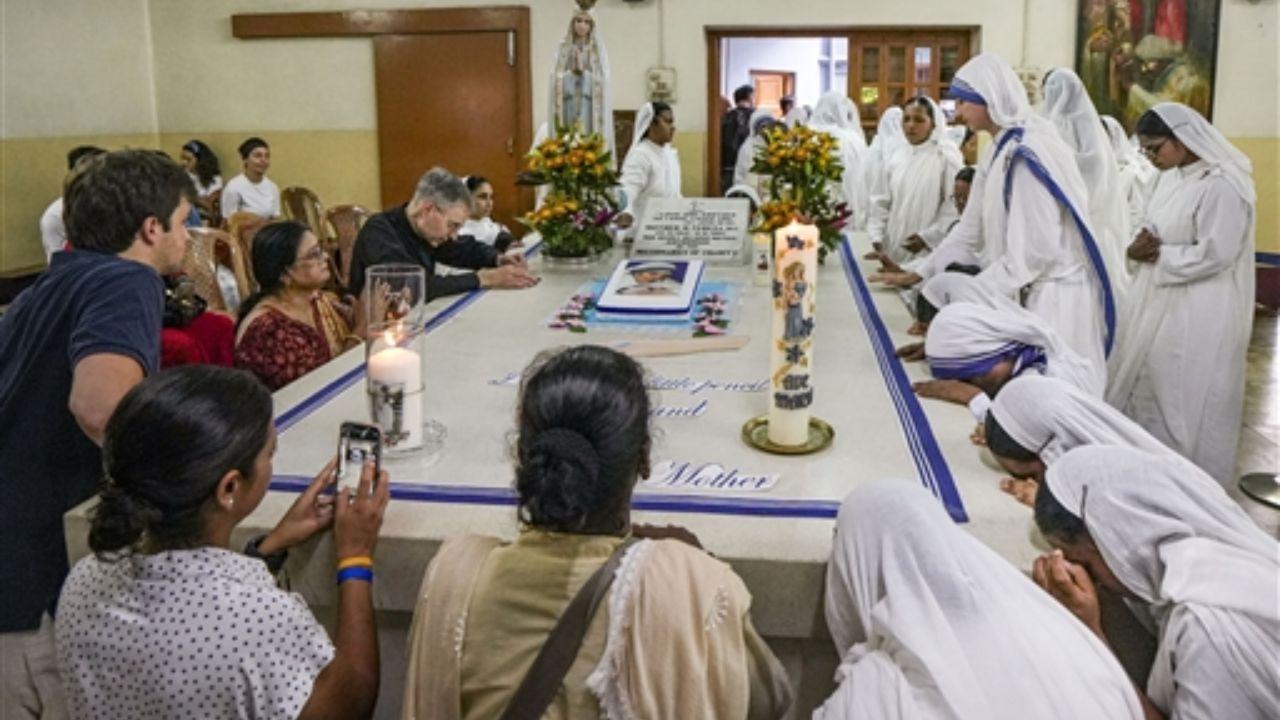
1/9
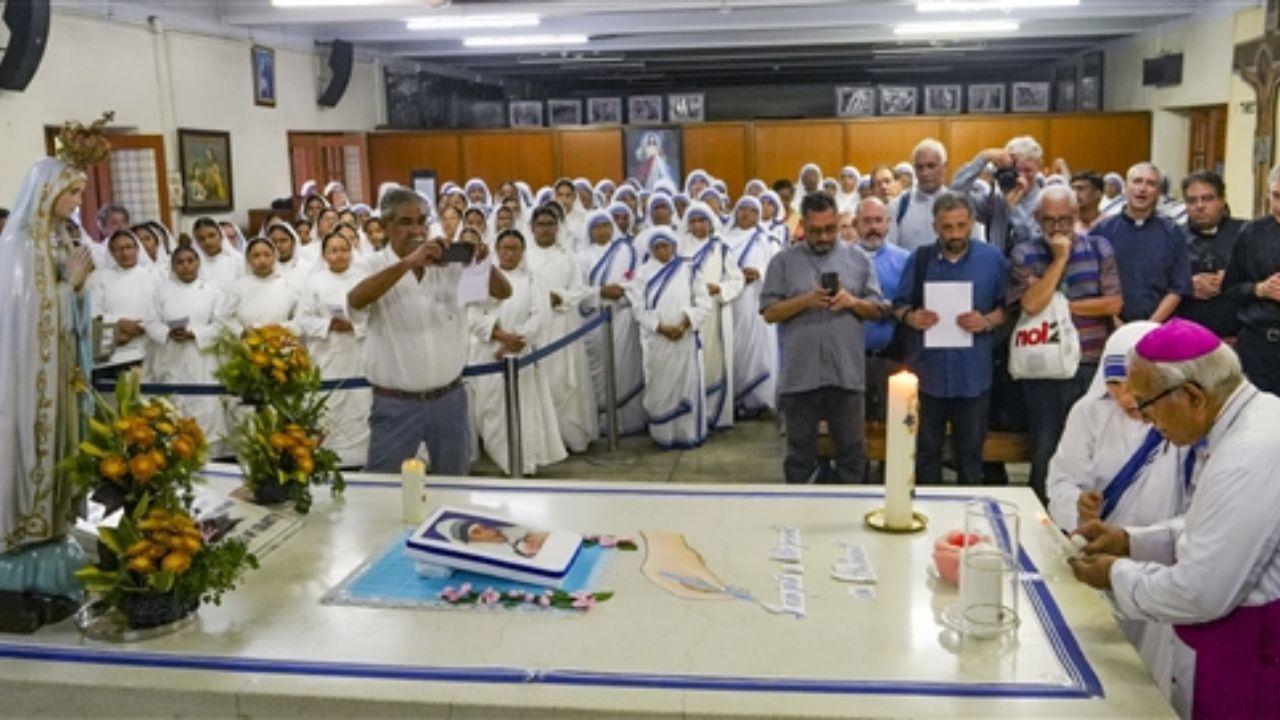
2/9
Mother Teresa’s death anniversary is observed worldwide as the International Day of Charity, recognising her unwavering commitment to the poorest of the poor.
ADVERTISEMENT

3/9
Mother Teresa, born Anjezë Gonxhe Bojaxhiu, was the youngest of three children. Her mother’s strong belief in helping the poor played a significant role in shaping her future dedication to charity work.
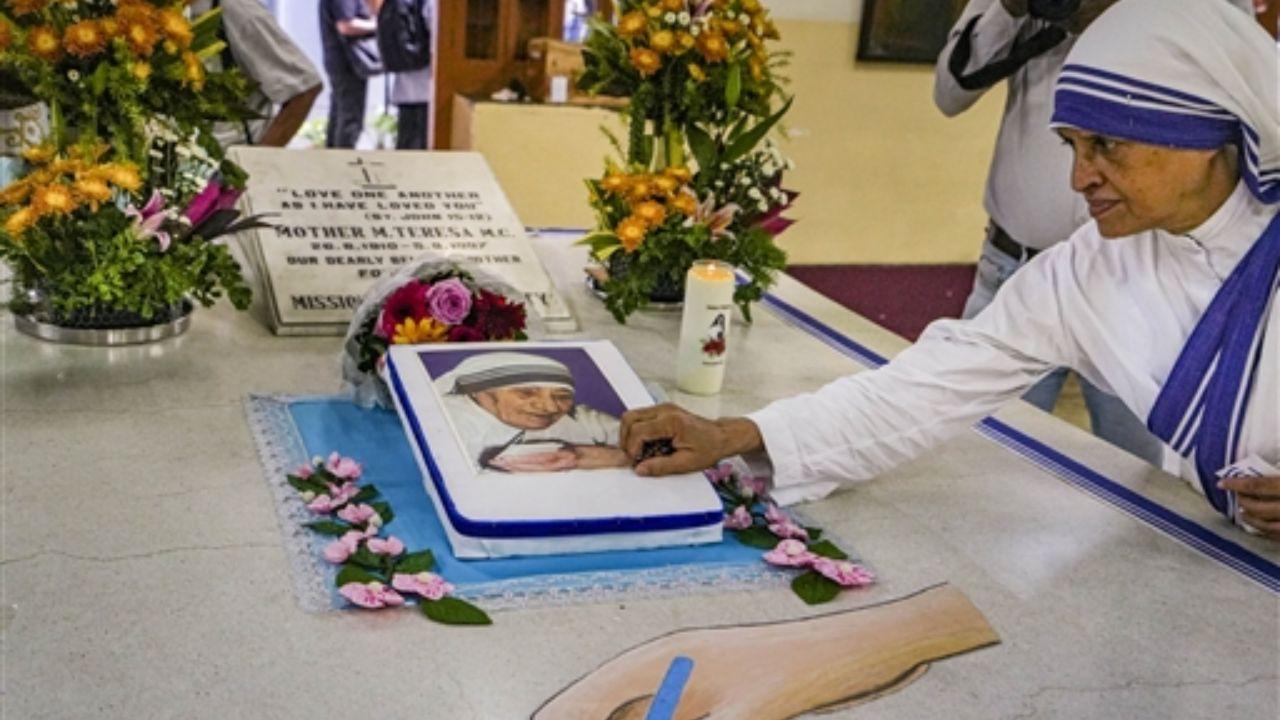
4/9
At the age of 18, Anjezë left her home to join the Sisters of Loreto in Ireland, adopting the name Sister Mary Teresa. She later moved to India, where she began her charitable work.
ADVERTISEMENT
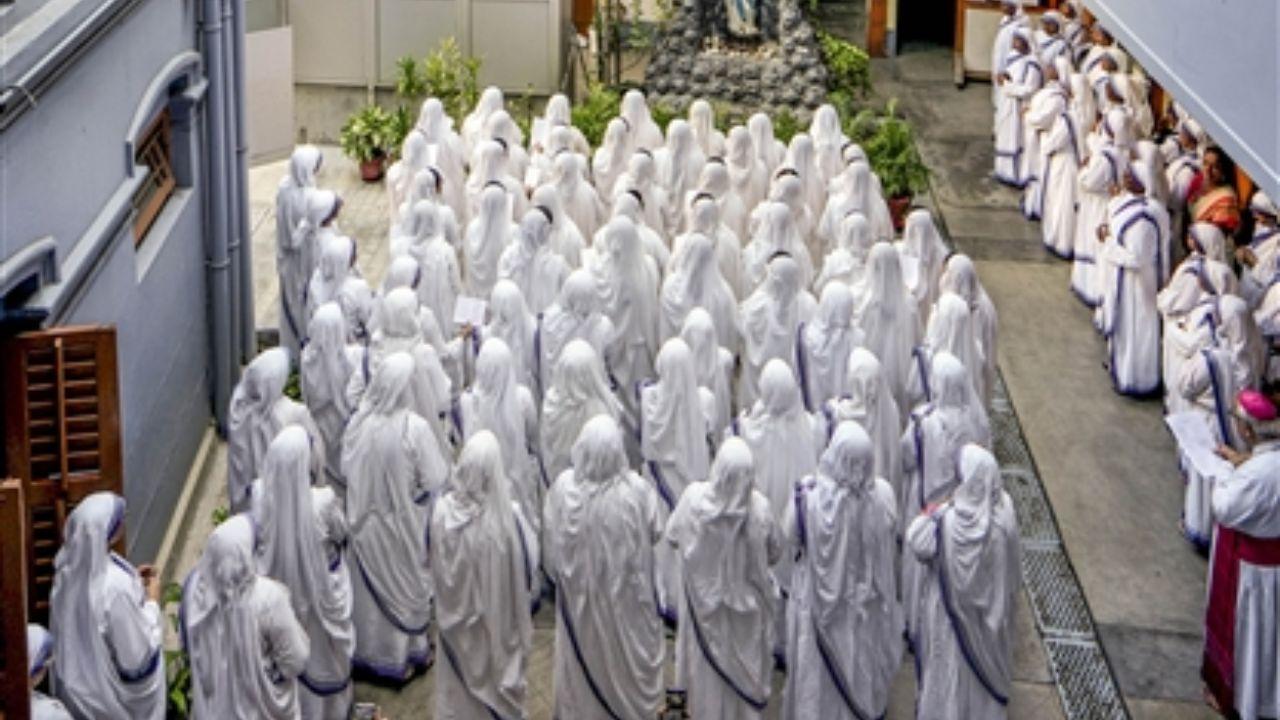
5/9
While teaching at St Mary’s School in Kolkata, Mother Teresa experienced what she called a "call within a call," which inspired her to leave the convent and work directly with the poor.
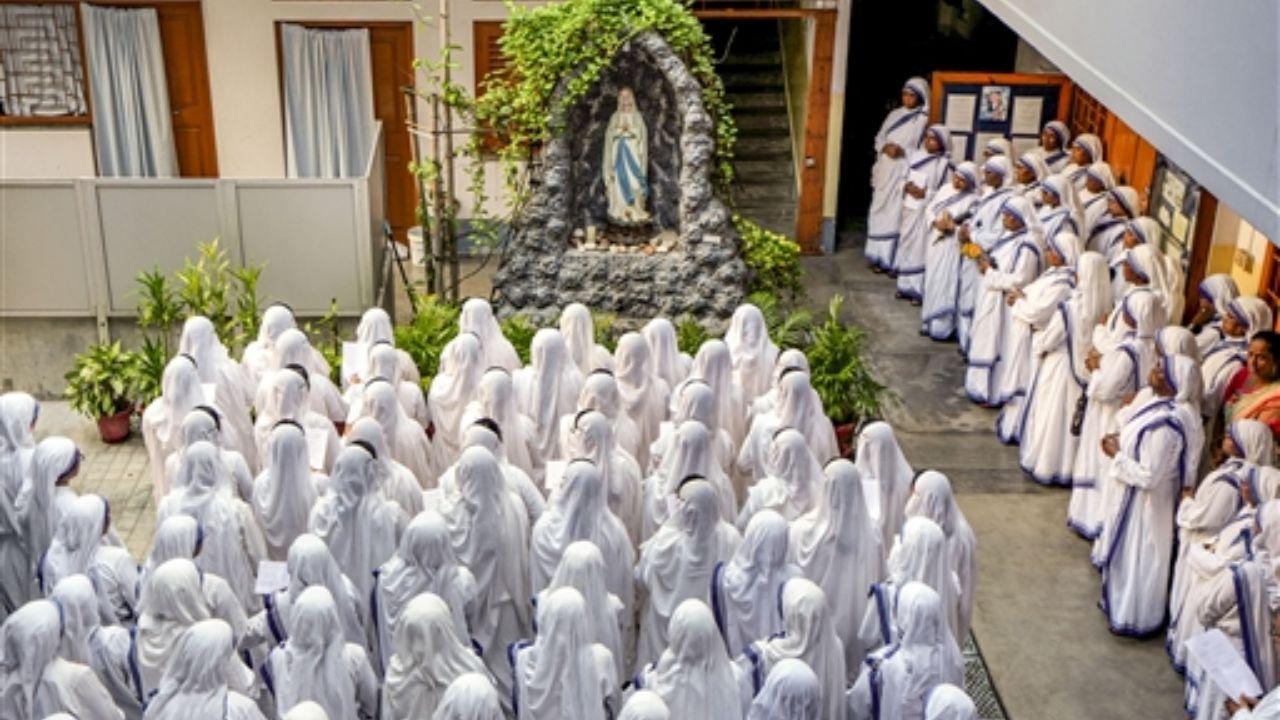
6/9
In 1950, Mother Teresa founded the Missionaries of Charity in Kolkata, with the mission to care for the most vulnerable in society. Despite initial challenges like community distrust and lack of funding, the organisation grew into a global movement.
ADVERTISEMENT
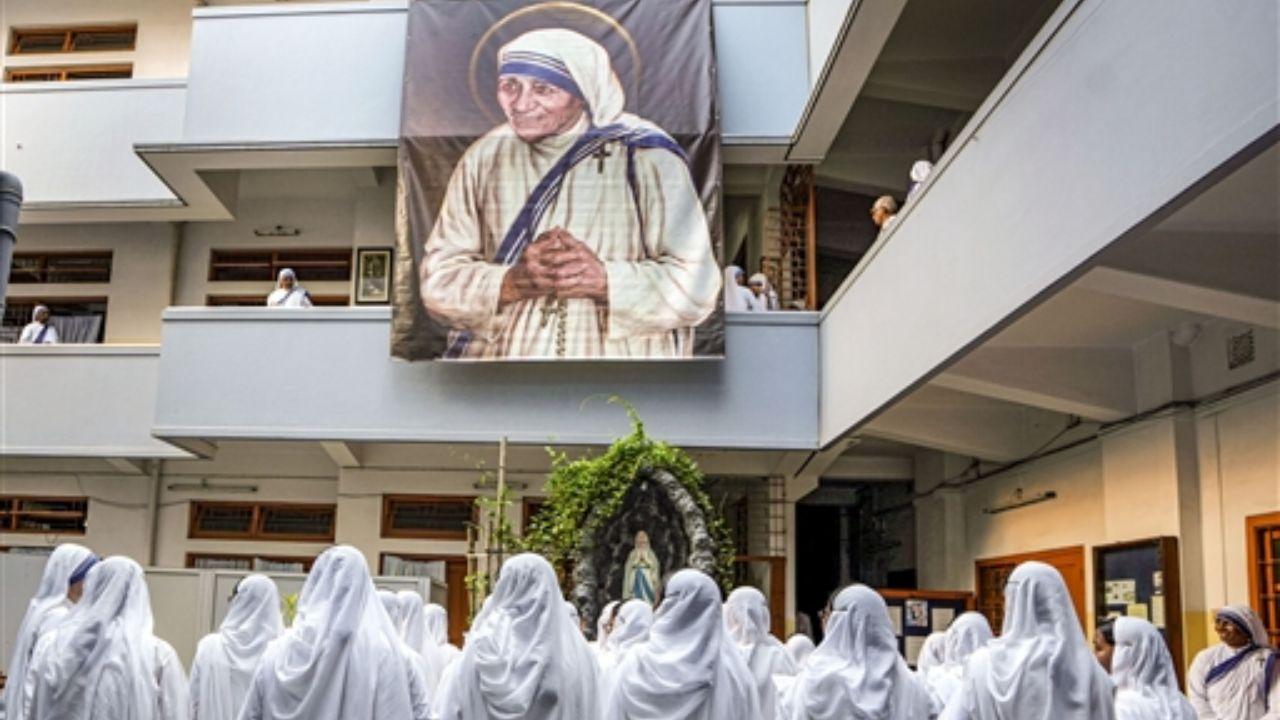
7/9
Mother Teresa received the Nobel Peace Prize in 1979. Notably, she requested that the money usually spent on the Nobel Banquet be donated to help the poor in India, reflecting her selfless nature.
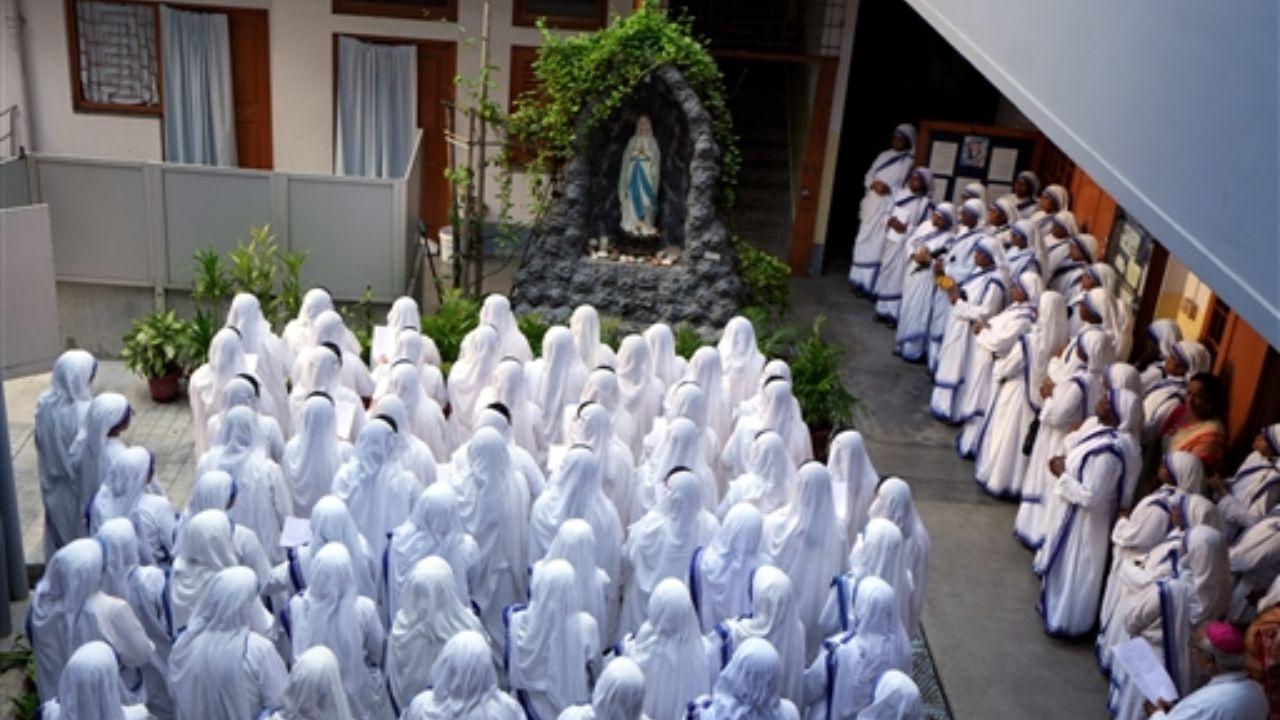
8/9
Despite her global recognition, Mother Teresa faced criticism, including doubts about the level of care in her homes and her stance on certain issues. Her approach, however, was deeply rooted in her Catholic faith.
ADVERTISEMENT
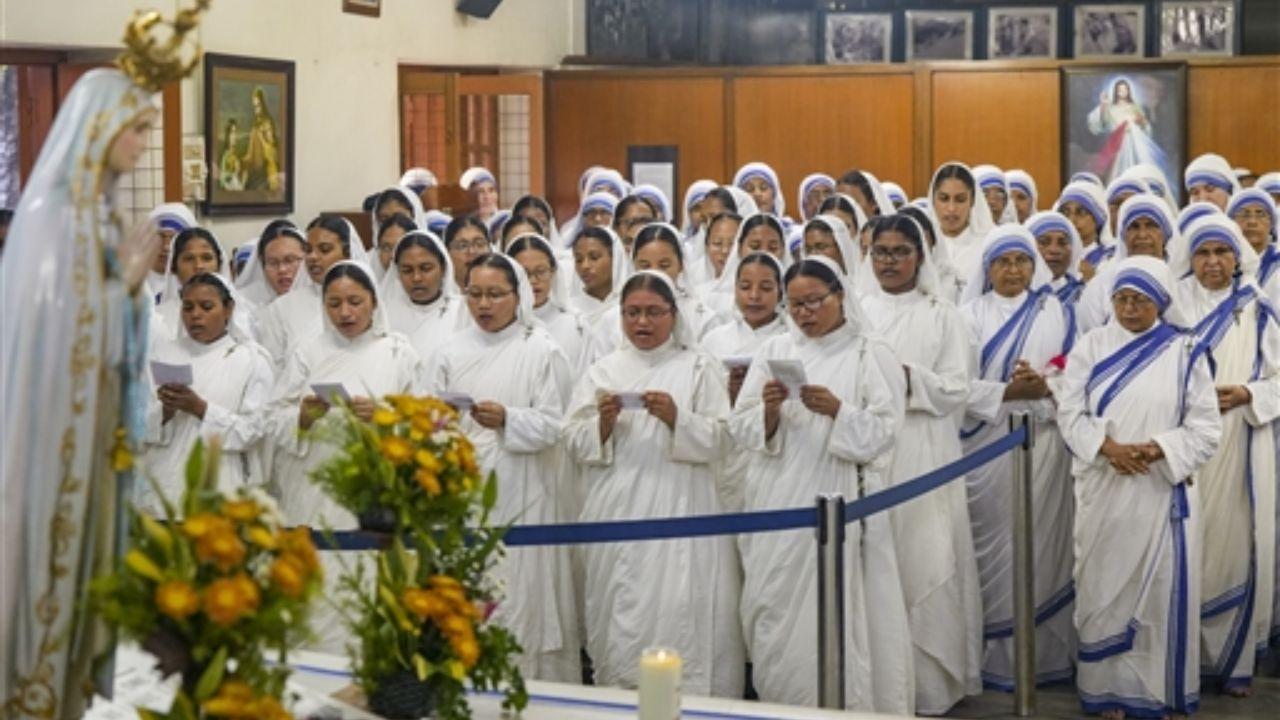
9/9
Even after gaining international fame, Mother Teresa led a humble life, living in modest accommodations and wearing a simple white sari with blue borders, symbolising her dedication to serving the underprivileged.



